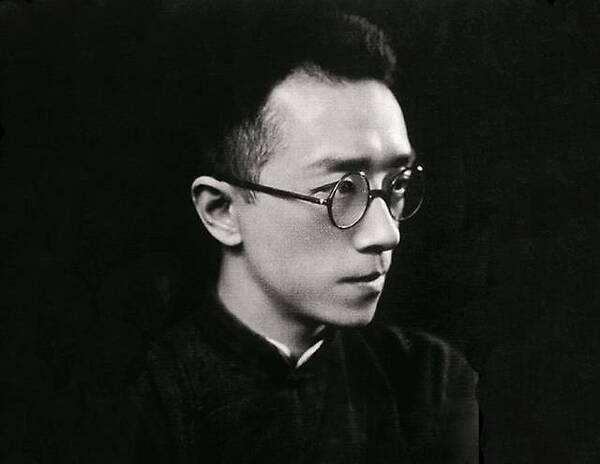In this life, Hu Shi has two things that are happy for future generations: one is the love that does not raise an eyebrow, and the other is the great cause of running for democracy and freedom. Although Hu Shi devoted his life to freedom and democracy, his attitude was unbelievably timid and timid.

In the 1950s and 1960s, there was a magazine in Taiwan called Free China, and Hu Shi was the publisher. This is a magazine that is very influential in Taiwan, and it was founded as a pro-Chiang Kai-shek magazine, but as the situation in Taiwan changed, the magazine soon turned sensitively to reviewing Taiwan's internal problems and criticizing the shortcomings of the Kuomintang government's policies, so relations with the ruling authorities quickly became rigid.
In 1951, Free China published an editorial called "The Government Must Not Lure the People to Crimes," which successfully angered the Taiwan authorities. At this juncture, everyone was waiting for Hu Shi to express his support, but Hu Shi immediately wrote a rather interesting letter to the magazine: "I want to formally propose today that you cancel the line of 'Publisher Hu Shi', which is a very sincere proposal issued with feelings, please forgive your old friends..." As soon as this letter came out, public opinion was in an uproar, and he was waiting for Hu Shiyang to do some support articles, but he resigned in the name of protest. In a public speech after returning to China, Hu Shi repeatedly stressed that he was only the nominal publisher of "Free China", and even said that "freedom of speech is to be fought for by oneself, to strive for freedom is to be responsible for oneself, and to say the wrong thing is to bear the responsibility of saying the wrong thing", not only did not give strong support to the magazine, but completely left himself behind.
What is even more humiliating is that in 1958, when Lei Zhen and others intended to form a new party, hu shi's performance was also ambiguous when they consulted Hu Shi's opinion. He wrote an essay entitled "Tolerance and Freedom," implicitly expressing his antipathy to the kuomintang's one-party dominance and his support for the need for an opposition party in Taiwanese society. However, he himself did not dare to act, and only encouraged Lei Zhen and others to come out to form a party, not only unwilling to be the initiator, but also unwilling to become the leader of the new party.
Later, Lei Zhen was arrested for this incident. At that time, Hu Shi was in the United States, and in the face of interviews with American reporters, he only avoided the importance and talked about some trial procedural issues, but did not mention anything about the case itself, and then simply hid from the media. Immediately after Hu Shi returned to Taiwan at the end of October, in the face of many media who came to interview him, he could not help but express his views on the Lei Zhen incident: "I once advocated building a bronze statue for Lei Zhen, but in exchange for ten years in prison. Then he slapped the table and scolded, "This is not fair," but after a while, he calmed down again and turned to the reporters and said, "I am emotional today, you should pay attention when you write, and you must consider your own job bowl." ”
This half threat and half warning of caution has to be said to be Hu Shi's attempt to preserve his own wisdom, but at the same time he has lost the naïve enthusiasm of intellectuals. After Hu Shi's death, Chiang Kai-shek's evaluation of Hu Shi was: a model of the old morality in the new cultural movement and a teacher of new ideas in the old ethics. This sentence gently and implicitly reveals the contradictions in Hu Shi's body, the kind of careful resignation and foresight that he wants to do but dare not do.